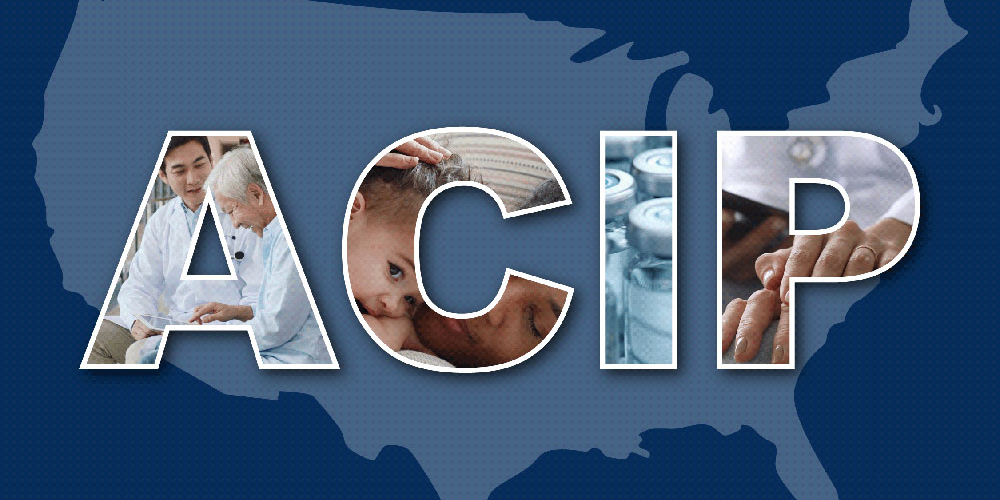
The Centers for Disease Control and Prevention (CDC) held its scheduled meeting of the Advisory Committee on Immunization Practices (ACIP) on June 25 and 26, just two weeks after Health and Human Services (HHS) Secretary Robert F. Kennedy Jr. unilaterally replaced the entire panel of 17 experts with seven new members, many of whom lack significant vaccine-related expertise. The chair of the meeting was Martin Kulldorff, Ph.D., co-author (with National Institutes of Health Director Dr. Jay Bhattacharya) of The Great Barrington Declaration. The session topics included: COVID-19 vaccines; respiratory syncytial virus (RSV) vaccines and monoclonal antibodies; influenza vaccines and the use of thimerosal as a preservative; the measles, mumps, rubella (MMR) and MMR-varicella (MMRV) vaccines; and brief presentations on chikungunya and anthrax vaccines.
Dr. Kulldorff kicked off the meeting with an update on the establishment of two new ACIP working groups to evaluate the cumulative effect of the childhood and adolescent immunization schedule, including the timing and interaction between the various vaccines, as well as existing vaccines that have not been reviewed in the last seven years. This includes evaluating the recommendation that infants receive their first hepatitis B vaccines on their day of birth and the scheduling of the MMR and MMRV vaccine doses.
COVID-19
The CDC presented a robust set of data on the epidemiology, vaccine effectiveness, safety, coverage, and implementation of COVID-19 vaccines. The data showed that the populations most at risk for severe disease and complications from COVID-19 are infants under six months and persons older than 65, and that the vaccine is effective at preventing severe disease, hospitalization, and death in all age groups. Data showed that maternal vaccination is effective in preventing these outcomes in infants under six months, who aren’t eligible to be vaccinated themselves. While the Federal Register notice announcing the meeting indicated the original ACIP would vote on COVID-19 vaccine recommendations, no vote was held. This is likely due to the fact that Secretary Kennedy unilaterally changed the CDC immunization schedule in late May without receiving input from the ACIP.
RSV
The CDC then presented data on the uptake, effectiveness, and safety of the maternal RSV vaccine and the first FDA-approved monoclonal antibody for infants under eight months during their first RSV season. Both the maternal vaccine and monoclonal antibody show astonishing effectiveness at preventing emergency room/urgent care visits and hospitalizations. The ACIP also voted, 5-2, to recommend a second monoclonal antibody developed by Merck that was approved by the FDA earlier this month. The committee voted unanimously to include this second antibody in the Vaccines for Children program which provides immunizations for free to about half of U.S. children.
Seasonal Influenza
During the ACIP’s discussion about seasonal influenza vaccines, Lyn Redwood, R.N., M.S.N., gave a presentation about thimerosal, a preservative currently used in about 4% of influenza vaccines. Redwood is past president of Children’s Health Defense (founded by RFK Jr., and known for its anti-vaccine views) but identified herself as a private citizen. While decades of scientific data show no evidence of harm from exposure to thimerosal in vaccines, thimerosal was removed from all vaccines in the childhood immunization schedule in 2001. In the U.S., it is now only present in multi-dose seasonal influenza vaccines, which make up 4% of all shots administered. After discussion, the ACIP decided, in three separate votes, to recommend that all adults, pregnant women, and children under 18 receive single-dose influenza vaccines formulated without thimerosal.
MMR/MMRV
Finally, Dr. Kulldorff gave a presentation on the use of the MMR and MMRV vaccines. After the MMRV vaccine was introduced in 2006, robust safety monitoring picked up an increase in febrile seizures experienced by children who received the MMRV vaccine when 12-23 months old. After approximately 26,000 doses given, there were 59 febrile seizures observed in this age group when the expected number was 38. There was no increased risk of seizures after the second dose, given at four to six years of age. Kulldorff proposed recommending that children under four do not receive the MMRV vaccine, although no formal vote was held.
Of note, Senator Bill Cassidy (R-LA), who chairs the Senate Health, Education, Labor, and Pensions (HELP) Committee (which has jurisdiction over CDC), posted on X calling for the ACIP meeting to “be delayed until the panel is fully staffed with more robust and balanced representation—as required by law—including those with more direct relevant expertise. Otherwise, ACIP’s recommendations could be viewed with skepticism, which will work against the success of this Administration’s efforts.” AAI previously sent Sen. Cassidy a letter urging him to call Secretary Kennedy before the HELP Committee to speak about his unprecedented changes to the ACIP and other concerning actions regarding vaccine policy.




